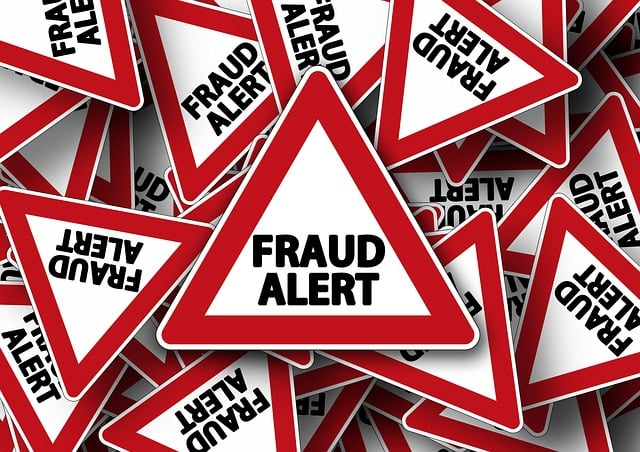Accusations of fraud are serious and warrant immediate attention. If you’re wondering what to do if you’re accused of fraud, stay calm. Prioritize finding a defense attorney and preserving any evidence that could support your case. This article will guide you through these steps and more, ensuring you’re prepared to effectively handle the allegations against you.
Key Takeaways
- Fraud encompasses various deceptive practices like identity theft and credit card fraud. Legal consequences in places like Utah can be severe, including imprisonment, fines, and permanent criminal records.
- It is critical to hire an experienced criminal defense attorney who has a record of handling fraud cases and understands state-specific laws and necessary defense strategies. A strong attorney-client relationship with trust, confidentiality, and clear communication is essential.
- Accurate collection and preservation of evidence, along with maintaining proper legal procedure compliance and avoiding self-incrimination or missteps in communication, are fundamental for a strong defense in fraud accusations.
Understanding Fraud Charges and Their Consequences

Facing false accusations of fraud can be a daunting experience, especially since false accusations happen more often than one might think. The stakes are high, with potential criminal charges, a tarnished reputation, and the risk of malicious prosecution. In the midst of falsely accusing someone, you must understand the nature of the false accusation against you, the potential consequences, and the workings of the legal process, including any false statement that might have led to the accusation. One possible outcome could be a malicious prosecution lawsuit if the case proceeds without proper evidence and the prosecutor presses criminal charges. Understanding these elements will arm you with the knowledge needed to effectively combat the accusations and protect your rights.
Types of Fraud
Fraud is a broad term encompassing a range of deceptive practices. Identity theft, for instance, involves the unauthorized use of an individual’s personal or financial information to commit illicit transactions or purchases. It can take many forms, from financial identity theft to criminal identity theft, where a person impersonates someone else during an arrest to avoid law enforcement ramifications.
Credit card fraud, a specific form of identity theft, is particularly prevalent, with over 440,000 reports in the U.S. in 2022 alone. Familiarizing yourself with these types of fraud forms the initial step in developing a solid defense against false allegations.
Legal Consequences
In Utah, the consequences of fraud charges can be severe, ranging from imprisonment, and fines, to a permanent criminal record. The extent of penalties varies based on the nature and amount involved in the fraudulent activity. For instance, fraud involving less than $5,000 can lead to a third-degree felony, with up to five years imprisonment and a fine of up to $5,000. If the fraud involves $5,000 or more, it escalates to a second-degree felony, carrying one to fifteen years imprisonment and up to a $10,000 fine. Furthermore, additional legal consequences can include restitution to the victim, which could lead to property seizure. Grasping these legal consequences is vital to formulating a successful defense strategy.
Hiring a Qualified Criminal Defense Attorney

Engaging an experienced criminal defense attorney is an imperative initial action when you’re wrongly accused of fraud. A criminal defense lawyer specializing in fraud cases can provide the guidance you need to navigate the complexities of the law, protect your rights, and clear your name.
Their knowledge of the legal intricacies specific to the Utah system can be a deciding factor in efficiently handling your case.
Finding the Right Attorney
The task of finding the right attorney requires more than a simple Google search. A qualified criminal defense attorney should have:
- A proven track record in handling fraud cases
- An in-depth understanding of fraud statutes and defense strategies
- Knowledge about the state laws where the fraud case will be tried, as statutes and defenses can differ by jurisdiction.
To find a reliable attorney, follow these steps:
- Look for referrals from trusted individuals or endorsements from professional legal organizations.
- Research the attorney’s case history, credentials, and past client testimonials to gauge their success rate.
- Finally, ensure that the attorney’s fees fit within your budget to avoid any surprises in the future.
Attorney-Client Relationship
Forge a robust attorney-client relationship as it is vital during such challenging times. Trust and confidentiality are the bedrock of this relationship. You should feel confident that your attorney will act in your best interest and keep all discussions confidential.
An open line of communication is equally important. Regular updates and responsiveness to queries can make you feel acknowledged and involved in the process. Remember, an attorney is there to represent you, and you should feel comfortable sharing sensitive information with them.
Gathering and Preserving Evidence

Substantiating your alibi through evidence collection can be pivotal to your defense. Gathering all potential evidence, including:
- physical items
- receipts
- records of communications is essential in establishing a timeline and context that supports your case. Even visual evidence like CCTV footage can prove vital.
Consider all aspects and avenues when gathering evidence; the more comprehensive your evidence is, the stronger your defense will be.
Document Collection
Accumulating all pertinent documents is vital for a robust defense. This includes:
- Financial documents such as bank statements, credit card statements, invoices, billing statements, and contracts that can help counter allegations of fraud
- Personal records like calendars, diaries, and logs can establish accurate timelines and whereabouts
- Employment records that can demonstrate financial transactions and income
Having these documents on hand will help strengthen your defense.
All correspondence, including letters and memos, can provide a detailed timeline and understanding of the context surrounding the alleged fraud.
Digital Evidence Preservation
In today’s digital era, safeguarding electronic evidence is as important as preserving physical evidence. Create a bit-for-bit duplicate of the original digital files to ensure they are secured and protected. Use cryptographic hash values to preserve their integrity and detect any unauthorized changes.
Keep a detailed audit log to document who has accessed or modified the digital evidence, ensuring its admissibility in court. Secure digital evidence stored on physical devices with strong passwords, and consider using secure cloud options for long-term preservation.
Complying with Legal Procedures

Adhering to legal procedures is not just a necessity but also a guarantee of a fair trial. These procedures uphold your rights and ensure that you can effectively defend yourself. Whether it’s the right to remain silent, the right to cross-examine witnesses or the right to a speedy trial, these procedural rights are essential to prevent unjust treatment in the legal proceedings.
Arrests and Summonses
Arrests and summonses are part of the legal process that requires careful handling. If arrested, you have the right to:
- See a copy of the arrest warrant
- Have your personal information collected during the booking process
- Be fingerprinted and photographed
- Be informed of the charges and advised of your rights at the arraignment
- Enter a plea, typically ‘not guilty’, at the arraignment
Having legal representation during arraignment can be beneficial.
If you receive a court summons, respond promptly to prove to the judge that you’re not a flight risk. Discuss your options for bail with your attorney if you are taken into custody.
Understanding Your Legal Rights
Being aware of your legal rights throughout the process is vital when confronting fraud charges. Here are some of your rights:
- The Fifth Amendment grants you the right to remain silent, protecting against self-incrimination.
- The Sixth Amendment permits you to cross-examine witnesses, challenging the prosecution’s evidence.
- You also have the right to a public trial, ensuring fair court proceedings and discouraging misconduct.
If your case proceeds to trial, you have the right to present a strong defense and scrutinize the evidence and arguments presented by the prosecution.
Avoiding Mistakes and Missteps
In a high-pressure situation like a fraud case, steering clear of errors and missteps is essential. Keep all details about your case confidential, sharing information only with your legal representative. Maintain composure when accused and avoid any actions that could be perceived as irrational, as they may impact your rights and legal standing.
Communication Missteps
Navigating the legal system requires careful communication. Here are some important tips to keep in mind:
- Avoid self-incrimination.
- Remember that you’re not obligated to speak with the police without an attorney present.
- Refrain from discussing case details with anyone other than your attorney.
Avoid contact with any alleged victims or witnesses to prevent misinterpretation or tampering with evidence.
Public Statements
Public statements can significantly impact your case. Any comments made without legal advice can be used as evidence in court, which may lead to inconsistencies and affect your credibility during the trial. Discussing the case publicly can unintentionally reveal your defense strategies, providing an advantage to the prosecution.
Always consult your attorney before making any public statements about your case.
Preparing for All Possible Outcomes

Assisted by your attorney, brace yourself for all potential outcomes of your fraud case, whether it’s a criminal or civil case. This includes scenarios such as acquittal, conviction, or entering into a plea bargain. Plan for your personal and professional future in the event of having a criminal record.
Understand the potential financial implications of your case, including costs related to defense, lost wages, and punitive damages.
Defense Strategy Development
Constructing a solid defense strategy is imperative when dealing with fraud charges. Here are some steps to follow:
- Understand the specific charges and relevant laws thoroughly.
- Build a legal team with attorneys who have expertise in the specific area of criminal law related to the charges.
- Prepare a persuasive narrative that communicates your innocence or mitigates your role.
Gathering character references, negotiating potential plea deals, understanding trial risks, examining prosecution evidence for weaknesses, and detailed trial preparation are all critical components of the defense strategy.
Reputation Management
Fraud charges can significantly damage your reputation. Work with your attorney to manage potential damage. Be transparent with the public and stakeholders about addressing allegations. Hiring an external team of lawyers and accountants for investigations can have several benefits, including:
- Demonstrating a commitment to a fact-driven resolution
- Positively influencing your reputation
- Providing expertise and objectivity in the investigation process
Implementing changes based on investigative results and consistently maintaining those changes can help restore credibility and trust.
Anticipating Outcomes
Anticipate all potential outcomes of your case, encompassing situations like acquittal, conviction, or agreeing to a plea bargain. Recognize the significance of plea negotiations, which may lead to reduced charges or sentences. Should a conviction occur, mitigate its consequences by exploring plea deals, diversion programs, or seeking expungement.
Understand the potential financial implications of your fraud case.
Seeking Mental and Emotional Support
Dealing with a fraud case can take an emotional toll. It’s essential to seek psychological and emotional support during these trying times. Being falsely accused of a crime can result in traumatic experiences that may lead to post-traumatic stress disorder (PTSD).
Therapy and counseling can provide a range of benefits, helping you process your emotions, rebuild your esteem, and develop coping strategies.
Therapy and Counseling
Professional therapy is a supportive resource beneficial for mental and emotional well-being during the stress of a fraud case. Therapy offers a confidential environment where you’re free to express your emotions and thoughts surrounding false accusations. By participating in therapy, you can work towards overcoming the trauma associated with false allegations, fostering personal resilience, and restoring your self-esteem.
Support Networks
Having a strong support network can provide emotional stability during challenging times. Trusted individuals in your network can provide emotional stability, helping you to stay strong and focused. Support groups for individuals who have been falsely accused can provide a platform for discussing experiences, offering mutual understanding, and reducing feelings of alienation.
Summary
In conclusion, being falsely accused of fraud can be a daunting experience. Understanding the charges and their legal consequences, hiring a qualified defense attorney, gathering and preserving evidence, complying with legal procedures, avoiding mistakes, preparing for all possible outcomes, and seeking mental and emotional support are crucial steps in navigating this challenging situation. It’s a journey that requires patience, resilience, and the right legal help.
Frequently Asked Questions
What do I do if I am accused of fraud?
It’s crucial to contact a lawyer immediately if you’ve been falsely accused of fraud. Failing to defend yourself can lead to unfair trials and wrongful convictions.
How do you fight false allegations?
If you are falsely accused of a crime, it’s important to realize the seriousness of the accusations and gather physical evidence and witness contact information to defend yourself. Intervening before charges and understanding the cost of a defense can also be crucial in fighting false allegations.
What types of fraud exist in Utah?
In Utah, fraud can include identity theft, credit card fraud, and other financial schemes. Be cautious and protect your personal information (2022).
What are the potential legal consequences of fraud charges in Utah?
The potential legal consequences of fraud charges in Utah can include imprisonment, fines, and a permanent criminal record. It’s important to be aware of the serious ramifications of these charges.
Why is hiring a specialized attorney important when facing fraud charges?
Hiring a specialized attorney for fraud charges is important because they understand the specific legal intricacies of fraud cases, resulting in a more effective defense strategy. For criminal legal representation in Utah contact: Darren Levitt of Levitt Legal.
